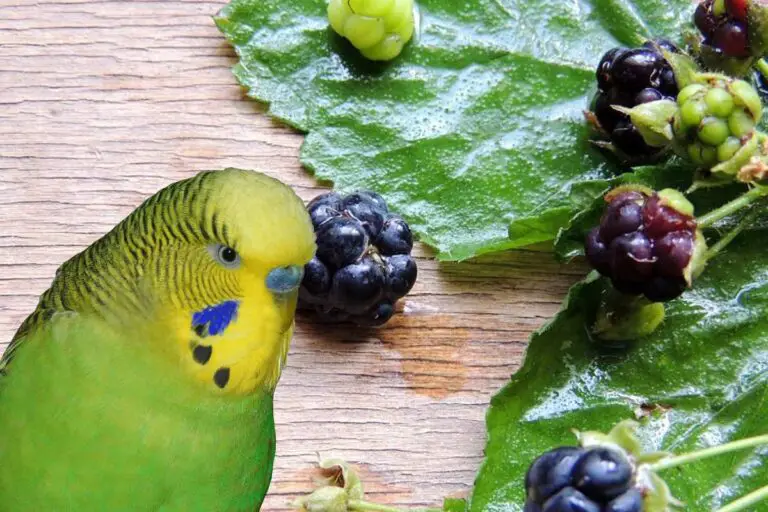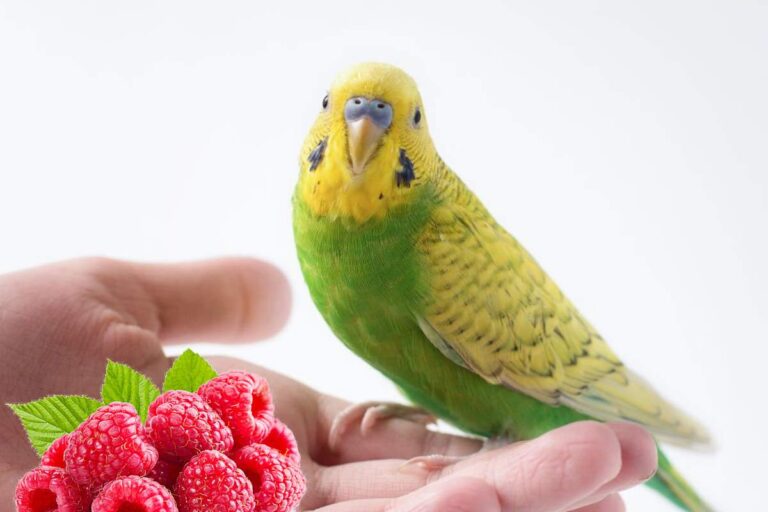Can Ducks Eat Mushrooms?
Ducks can eat certain types of mushrooms, specifically those that are safe for human consumption like white button, cremini, and portobello mushrooms. However, some varieties of mushrooms are toxic and can cause severe health issues in ducks, so it’s critical to accurately identify the mushrooms before feeding. Overall, while mushrooms can be part of a duck’s diet, they are not a necessity, and when in doubt, it’s best to avoid feeding them to ducks.

You’ve likely seen ducks at the park, cheerfully waddling around and pecking at whatever they come across. But have you ever wondered about their diet? Specifically, have you ever thought, “Can ducks eat mushrooms?” It’s a question that’s as intriguing as it is complex. Don’t worry, we’re here to provide answers, as we dive deep into the diet of our feathery friends and unearth the truth about ducks and mushrooms. From discussing their typical food choices to understanding the potential effects of mushrooms on them, we’re going to explore it all. We’ve got a wealth of valuable information waiting for you. So, sit tight, and let’s unravel this mystery together!
Key Takeaways:
- Ducks are omnivores, meaning they can eat a variety of both plant and animal matter. Domesticated and wild ducks may have slightly different diets due to their environments.
- Ducks can consume certain types of mushrooms, but not all are safe. Some mushrooms can provide nutritional benefits while others can be toxic and harmful.
- Safe mushrooms can offer proteins, vitamins, and antioxidants. However, toxic mushrooms can lead to gastrointestinal distress, neurological symptoms, or organ damage.
- White button, cremini, and portobello mushrooms are generally safe for ducks to eat when properly prepared.
- Certain varieties like death cap, fly agaric, and false morel mushrooms are extremely harmful and should never be fed to ducks.
- Always correctly identify the mushroom type, prepare it properly, feed in moderation, and monitor ducks after feeding for any signs of distress or discomfort.
What do Ducks Typically Eat?
When it comes to the diet of ducks, it’s essential to differentiate between wild ducks and domesticated ducks as their diets can slightly vary. In general, ducks are omnivores, which means they eat a variety of both plant and animal matter.
Wild Ducks’ Diet
Wild ducks primarily feed on a diverse selection of natural food sources. These may include:
- Aquatic plants: Ducks often feed on underwater vegetation, extracting essential nutrients.
- Insects and small fish: These serve as an excellent source of protein for ducks.
- Seeds and grains: Wild ducks frequently consume seeds and grains they find in their habitat.
- Berries and nuts: Some duck species enjoy berries and nuts, depending on the season and availability.
These natural food sources help them to meet their nutritional requirements, providing essential vitamins, minerals, proteins, and fats.
Domestic Ducks’ Diet
Domestic ducks also have diverse diets. Owners often feed them:
- Commercially prepared duck feed: This usually contains a balanced mix of nutrients that ducks need to stay healthy.
- Vegetables and fruits: Ducks can eat a variety of fruits and vegetables, including peas, leafy greens, and non-citrus fruits.
- Grains: Oats, wheat, and rice are excellent grain choices for ducks.
Understanding a duck’s typical diet is the first step to determining if and how mushrooms can fit into this dietary spectrum.
Can Ducks Eat Mushrooms?
This question isn’t a simple yes or no answer. The reality is some mushrooms are safe for ducks to eat, while others are toxic.

Safe Mushroom Consumption
Ducks are usually foragers in the wild, and their diet can include wild mushrooms. Their bodies can handle certain types of fungi, and these can offer nutritional benefits such as proteins, vitamins, and antioxidants. However, it’s critical to note that not all mushrooms found in the wild are safe.
Toxic Mushrooms
Some mushrooms are toxic, not just to ducks, but many other animals and humans. These can cause severe harm to a duck, leading to health complications, and in some cases, death. Ducks don’t inherently know to avoid these toxic mushrooms, so they may consume them without realizing the potential danger.
Caveat on Mushroom Feeding
While some mushrooms can be part of a duck’s diet, it’s not a necessity. Ducks can have a completely healthy and balanced diet without ever consuming mushrooms. Therefore, if there’s any uncertainty about a mushroom’s safety, it’s best to err on the side of caution and avoid feeding it to ducks altogether.
Potential Effects of Mushrooms on Ducks
Mushrooms’ effects on ducks, as with any other food, largely depend on the type of mushroom and the amount consumed.
Beneficial Effects of Mushrooms
Certain mushrooms can be a beneficial addition to a duck’s diet. They offer a variety of nutrients including:
- Proteins: Mushrooms are a good source of plant-based protein, which is an essential nutrient for ducks.
- Vitamins and minerals: They provide various vitamins and minerals like Vitamin D, B vitamins, selenium, and potassium.
- Antioxidants: Antioxidants found in mushrooms can help combat oxidative stress in ducks.
These nutrients can support the overall health of a duck, contribute to their growth, and enhance their immune system.
Negative Effects of Mushrooms
Conversely, consuming toxic mushrooms can be dangerous, or even deadly, for ducks. The symptoms can vary based on the type of mushroom and quantity consumed, but can include:
- Gastrointestinal distress: This can involve vomiting, diarrhea, or loss of appetite.
- Neurological symptoms: These may include tremors, seizures, and other abnormal behaviors.
- Liver or kidney damage: In severe cases, toxic mushrooms can cause organ damage.
If a duck displays any of these symptoms after consuming mushrooms, it’s crucial to seek immediate veterinary care.
Understanding the potential effects of mushrooms on ducks can help owners make informed decisions about incorporating mushrooms into their ducks’ diet.
Types of Mushrooms Ducks Can Eat
While there are over 10,000 known types of mushrooms, only a small fraction are known to be safe for ducks to eat. These commonly include varieties that are also safe and nutritious for human consumption.
White Button Mushrooms
These are one of the most commonly consumed mushroom varieties. They’re a safe choice for ducks and offer nutrients like protein, vitamins, and minerals.
Cremini Mushrooms
Cremini mushrooms, often used in salads and pasta dishes, are also safe for ducks. They contain antioxidants, vitamins, and essential minerals that can benefit ducks’ health.
Portobello Mushrooms
Portobellos are mature cremini mushrooms with a meatier texture. They’re safe for ducks and provide a good source of dietary fiber, potassium, and selenium.
It’s essential to note that while these mushrooms are generally safe for ducks, they should always be fed in moderation as part of a balanced diet. Additionally, mushrooms should be clean and fresh as rotten or moldy mushrooms can be harmful.
Mushrooms Toxic to Ducks
Mushrooms that are toxic to ducks are typically the same ones that are harmful to humans and other animals. Below are a few examples:
Death Cap Mushrooms
Death Caps are extremely toxic mushrooms that can be lethal to ducks. They can cause severe liver and kidney damage, among other health issues. These mushrooms are responsible for most mushroom poisoning deaths in humans, and the same toxicity applies to ducks.
Fly Agaric Mushrooms
The Fly Agaric, recognized by its red cap with white spots, is another toxic mushroom. It can cause severe neurological symptoms in ducks such as tremors and lack of coordination.
False Morel Mushrooms
False Morels can cause gastrointestinal distress in ducks, resulting in symptoms like vomiting and diarrhea. They can also cause more severe symptoms like tremors and seizures.
Identifying these toxic mushrooms can be challenging due to their resemblance to some edible varieties. For this reason, only feed ducks mushrooms that you’re absolutely certain are safe. When in doubt, it’s better to refrain from feeding mushrooms to ducks altogether.
How to Safely Feed Ducks Mushrooms
Given the potential risks associated with feeding ducks mushrooms, it’s important to exercise caution. Here are some key guidelines:
Mushroom Identification
Only feed ducks mushrooms that you can positively identify as safe. If you’re uncertain, it’s better to avoid feeding it to them. An excellent way to ensure you’re feeding safe mushrooms is to stick to commercially grown varieties that are intended for human consumption.
Preparation
Just as with humans, it’s important to properly prepare mushrooms before feeding them to ducks. Ensure they are clean and free from dirt or other contaminants. You can offer them raw or cooked, but avoid using any seasoning or oil.
Moderation is Key
While mushrooms can offer some nutritional benefits, they should only make up a small portion of a duck’s diet. Offering too many could upset their nutritional balance.
Monitor Ducks After Feeding
After feeding ducks mushrooms for the first time, keep a close eye on them for any signs of distress or discomfort. If you notice any adverse reactions, stop feeding them mushrooms and consult a vet if necessary.
Feeding ducks mushrooms can be a risk, but with careful identification and preparation, and by observing the principle of moderation, you can safely introduce this food into their diet.
Final Thoughts
In conclusion, understanding what to feed ducks, and what to avoid, is crucial for their health and wellbeing. We’ve learned that while ducks can consume certain types of mushrooms, not all fungi are created equal. It’s a delicate balance, requiring us to differentiate between safe and toxic mushrooms. Sure, it can be complex, but the effort is worth it. After all, who wouldn’t want to ensure these feathered friends enjoy a safe, balanced, and nutritious diet?
As we wrap up our exploration, remember that moderation is key and when in doubt, always err on the side of caution. Armed with this newfound knowledge, you’re now better prepared to care for your ducks or interact with the ones you encounter at the park. Keep exploring, keep learning, and continue making a difference in the lives of these delightful creatures. Happy duck-feeding!
Frequently Asked Questions
1. Can I feed my ducks store-bought mushrooms?
Yes, store-bought mushrooms like white button, cremini, and portobello are generally safe for ducks. However, it’s important to clean and prepare them properly before feeding.
2. What should I do if I suspect my duck has eaten a toxic mushroom?
If your duck shows signs of distress after consuming a mushroom, such as vomiting or tremors, you should seek immediate veterinary care. It’s important to remove any remaining mushrooms from their environment to prevent further ingestion.
3. How often should I feed mushrooms to my ducks?
Mushrooms should be treated as an occasional treat for ducks, not a staple of their diet. Always ensure they have a balanced diet with plenty of variety.
4. Should I cook the mushrooms before feeding them to my ducks?
While it’s not strictly necessary to cook the mushrooms, it can help to break down tough fibers and make them easier for the ducks to digest. Avoid adding any seasoning or oil if you choose to cook them.
5. Can ducks differentiate between toxic and non-toxic mushrooms?
Ducks do not inherently know the difference between toxic and non-toxic mushrooms. It’s important to control their environment and diet to avoid accidental ingestion of toxic mushrooms.

Martin Cooper
Hello and welcome! I’m an avid bird enthusiast, dedicated to observing, understanding, and documenting our feathery friends. I hope my passion and knowledge inspires your own avian admiration! Join me as we soar into this fascinating world.






